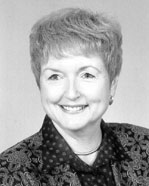The fiasco of the United States Presidential Election 2000 in Florida made a mockery of a democracy's fundamental activity: voting. Mountains of paperwork analyzing what went wrong with election technology or election laws have accumulated in election offices, legislatures and courtrooms around the nation. "Hanging chads" and "recounts" became household expressions - and justly so. Some elections districts had error rates as high as 5 percent, far greater than President George W. Bush's margin of victory. Technological and legal issues clearly needed attention to revive Americans' flagging confidence in the elections system after the controversy, as post-election polls showed.
What most of the analysis by government task forces, academics and pundits largely has overlooked, however, has been the role poor poll worker management played in causing problems on Election Day. The evidence, which ranged from the comic to the shocking, was everywhere. In one case, a poll worker accidentally took a bag of ballots home after mistaking it for his laundry. Poll workers in other Florida voting districts improperly turned away voters from the polls, mishandled machinery that led to vote-calculation errors, or weren't able to instruct voters on how to properly operate voting machines. Incidents like these indicate that, in addition to modernizing election equipment and updating old laws, governments should take a cue from the business community in recognizing "people problems" in their organizations. "Senior executives are beginning to devote the necessary attention to understand the links between human activities and desired business outcomes," Jessica Korn of the Gallup Organization said:
In terms of elections, the "business outcomes" are reducing the number of errors made during elections and making voting as painless as possible for voters. And while the business world can help point out the malady, the volunteer community can shed light on actionable solutions. The nature of poll workers' jobs makes volunteer-management principles in four areas - attitude and motivation, recruitment, training, and evaluation - especially apropos for improving the election process.
After dispensing with some helpful definitions, this paper will describe common election routines and how to apply volunteer-management best practices. The goal isn't to lambaste elections administrators - many of whom have made admirable innovations in election management or face significant barriers to reform - but to suggest ways they might better meet the needs and expectations of the public.

 Mary Wiser, innovative director of volunteer services at the Courage Center in Minnesota, lost her fight with cancer but remains in the memory of the many volunteer program managers who saw her as a mentor. Unfortunately, Mary was not a writer, but her friends have culled her files and share some of her remaining training materials and other words of wisdom.
Mary Wiser, innovative director of volunteer services at the Courage Center in Minnesota, lost her fight with cancer but remains in the memory of the many volunteer program managers who saw her as a mentor. Unfortunately, Mary was not a writer, but her friends have culled her files and share some of her remaining training materials and other words of wisdom.